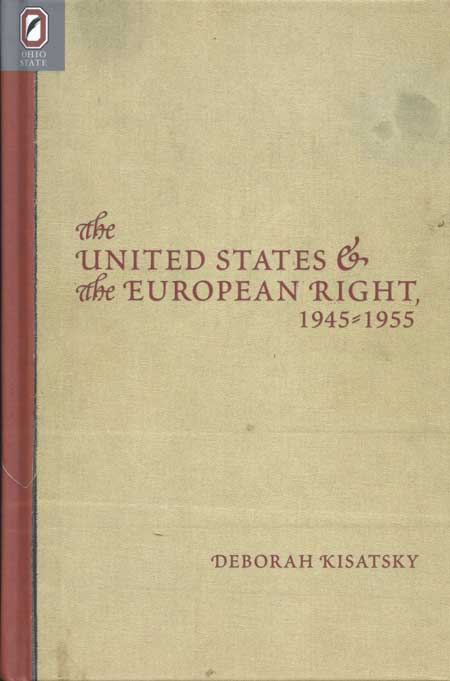The United States and the European Right, 1945–1955Deborah Kisatsky |
 9/06/2005 History/United States/20th century; Political Science/International Relations/Diplomacy 237 pp. 6x9  $24.95 paper 978-0-8142-5334-2 Add paper to shopping cart $119.95 cloth 978-0-8142-0998-1 Add cloth to shopping cart $14.95 CD 978-0-8142-9076-7 Add CD to shopping cart Shopping Cart Instructions Review/Change Shopping Cart & Check-out | |||
|
“This book is an excellent example of the new international history. Kisatsky’s superb examination of the American response to the political right adds to and challenges our understanding of U.S.-German relations after World War II.” —David Schmitz, Whitman College “Kisatsky argues that the United States employed a variety of diplomatic responses—containment, cooptation, and cooperation—to Right-wing challenges in postwar Europe with the objective of protecting and increasing American ‘power and hegemony.’ History will not be able to dispute her evidence about America’s extreme reaction to a security threat at the height of the Cold War, a reaction that most Americans have come to regret.” —Thomas Schwartz, Vanderbilt University Nazi Germany’s defeat in May 1945 commenced a decade-long Allied effort to democratize the former Reich. The United States simultaneously began sheltering scientists, industrialists, and military officers complicit in Nazi crimes. What explained this conflict between the spirit and practice of denazification? Did U.S. Cold War anticommunism simply replace antifascism in the postwar period? Did Americans favor rightists over leftists in a quest to restore “order” in Europe? In this groundbreaking study, Deborah Kisatsky shows that opportunity, not order, galvanized U.S. foreign policy, and that American dealings with the European Right were more complex than has been presumed. U.S. leaders cooperated with West German Chancellor Konrad Adenauer to achieve shared Atlanticist goals. And the United States co-opted nationalistic fighters into a secret stay-behind net of the Bund Deutscher Jugend-Technischer Dienst. But Allied leaders jointly worked to contain such vocal neutralist-nationalists as the ex-Nazi Otto Strasser. Cooperation, co-optation, and containment of French and Italian, as of German, rightists advanced American hegemony in Europe. These strategies extended techniques of social control perfected within the United States and synthesized domestic and international systems of power in the twentieth century. Based on extensive multinational research, this book raises bold questions about the deep sources of U.S. foreign policy, past and present.
| ||||


